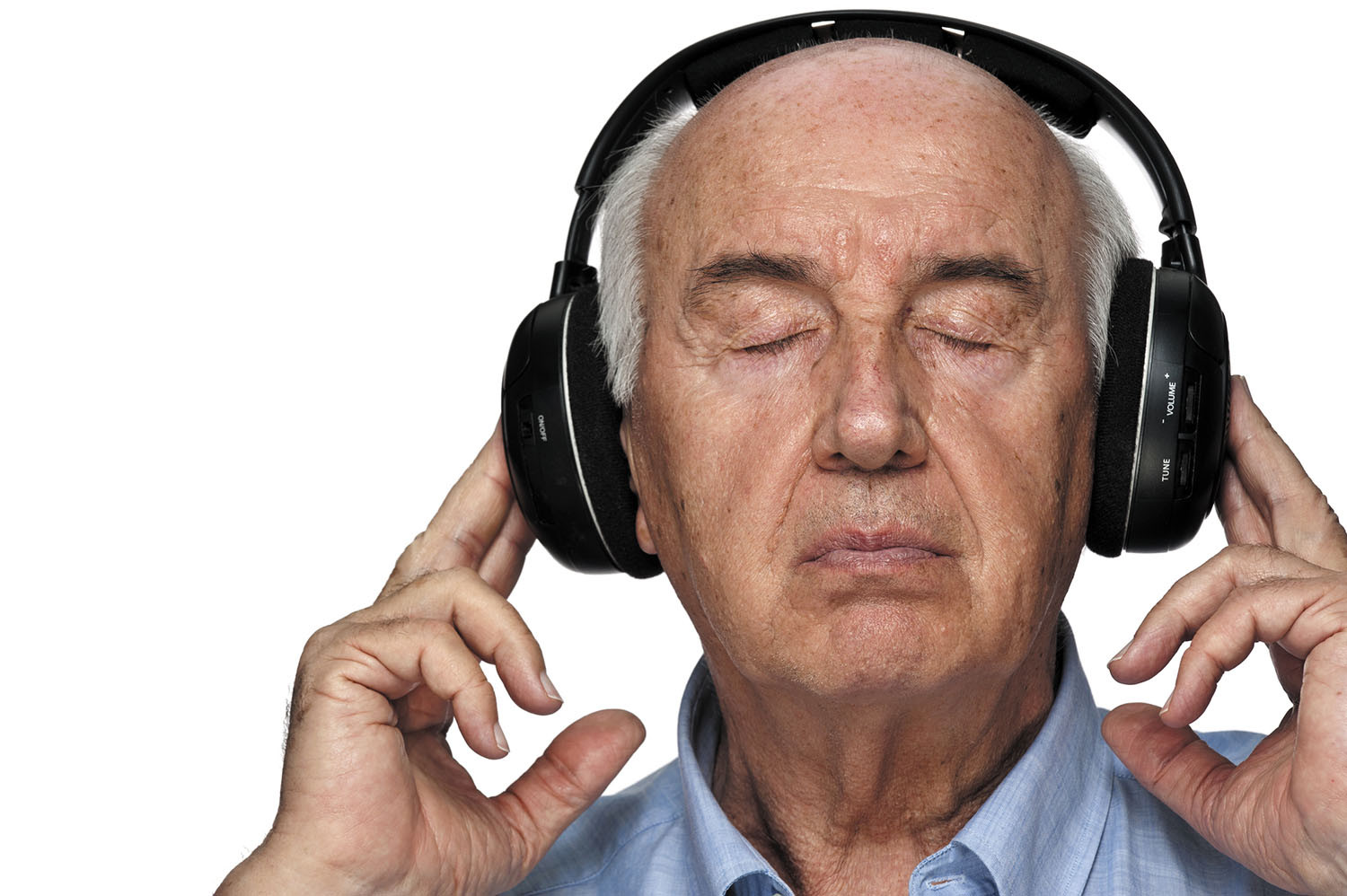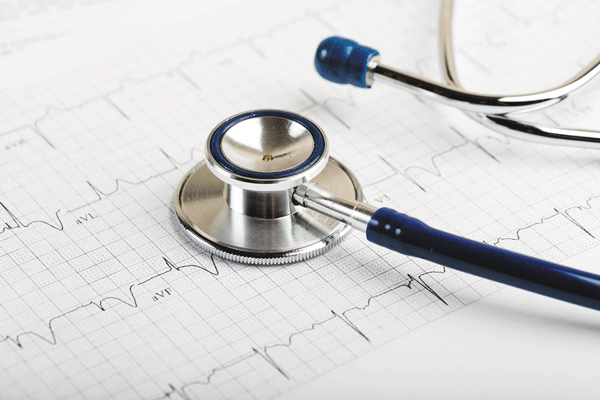Recent Articles

An action plan to fight unhealthy inflammation

How to treat spider bites and when you need to see your doctor

Gratitude enhances health, brings happiness — and may even lengthen lives

Skin care for aging skin: Minimizing age spots, wrinkles, and undereye bags

Medicare versus Medicaid: Key differences

Prostate cancer: Short-course radiation as effective as longer-term treatments

Lost a tooth? What to know about dental implants

Hyperbaric oxygen therapy: Evidence-based uses and unproven claims

Gatorade. Liquid IV. Do you need extra electrolytes?

Sexual violence can cast a long shadow on health
Mental Health Archive
Articles
A noisy problem
People often become more sensitive to noise as they age, which can affect their mental and physical health.
Image: © Juanmonino/Getty Images
Are you more sensitive to noises than you used to be? Do certain sounds now feel too loud and jarring? Don't worry; it's actually quite normal.
Age-related hearing loss is common among older adults and affects about two-thirds of men in their 70s and 85% of men ages 80 and older. Although it's not clear why, this can also make people hypersensitive to sounds that they used to tolerate easily, which in turn can affect their well-being.
Anxiety and stress weighing heavily at night? A new blanket might help
Weighted blankets have long been used for certain conditions. They may provide benefits for people with insomnia and anxiety, but research is scarce.
Image: © Eyecandy Images/Getty Images
Some people count sheep at night. You count worries. If you often find yourself lying awake at night, staring at the ceiling, you may be looking for solutions to help you get back to sleep. One new approach that doesn't involve drugs or doctors is becoming increasingly popular: weighted blankets.
These blankets look like regular blankets, but they're filled with plastic beads or pellets to make them heavier. They typically weigh from 3 pounds to upwards of 20 pounds. Companies are marketing them as a solution for insomnia as well as nighttime anxiety and stress reduction. And people are buying. Sales of the blankets have surged in the past two years.
FDA: Certain antibiotics may bring serious risks
Research we're watching
In December 2018, the FDA issued a warning about certain antibiotics known as fluoroquinolones, a drug class that includes ciprofloxacin (Cipro) and levofloxacin (Levaquin). The drugs are associated with rare ruptures or tears in the body's main artery, the aorta, which can cause serious, sometimes fatal bleeding. Cases were reported in people taking these antibiotics orally or by injection.
Because of this risk, the FDA is advising doctors to try to avoid prescribing these antibiotics to people who are at higher risk for problems with the aorta, unless there are no other antibiotics available to treat the infection. This includes people who have high blood pressure, certain genetic disorders (such as Marfan syndrome and Ehlers-Danlos syndrome), or a history of arterial blockages or aneurysms.
Parents don’t always realize that their teen is suicidal
The life of a teenager can be filled with drama, real or imagined. But while parents may think their teen overreacts too much, parents themselves might under-react to indications that a teen could be contemplating suicide.
Grief can hurt — in more ways than one
Stress and depression may lead to new health issues or intensify the symptoms of existing conditions.
Image: © AlexRaths/Getty Images
We tend to think of grieving as an emotional experience, and it is — fraught with intense sadness, profound loss, and psychological pain. But grief has a physical side that sets us up for a number of health risks. "Most of these side effects are the result of emotional distress responses," explains Dr. Maureen Malin, a geriatric psychiatrist with Harvard-affiliated McLean Hospital. Whether you're grieving the loss of a loved one, a job, a home, or a beloved pet, it's important to understand how the process puts your health in jeopardy.
Stress and grief
Grieving takes a toll on the body in the form of stress. "That affects the whole body and all organ systems, and especially the immune system," Dr. Malin says. Evidence suggests that immune cell function falls and inflammatory responses rise in people who are grieving. That may be why people often get sick more often and use more health care resources during this period.
Grieving? Don’t overlook potential side effects
The emotional weight of grief affects the body in the form of stress, which can make existing conditions worse or cause new ones, and can also lead to depression. Maintaining health may seem difficult while grieving, but doing so can help rebuild mental strength.
Omega-3s for anxiety?
News briefs
Image: © emiliozv/Getty Images
Omega-3 fatty acid supplements may help ease anxiety symptoms in people diagnosed with a range of physical and mental health problems, according to a review published in the Sept. 14, 2018, JAMA Network Open. The report pooled findings from 19 different studies and included 1,200 people. Most of the studies compared omega-3 supplements to a placebo. Taken together, the studies included people with a range of health problems, including heart attacks, attention deficit disorder, substance abuse, depression, and Parkinson's disease, as well as some groups without any specific clinical diagnosis. Researchers found that people who took high doses of omega-3s (up to 2,000 mg a day) seemed to have the most reduction in anxiety symptoms. Omega-3 fatty acids, which are usually derived from fish oil, have a number of biological effects in the body. Brain membranes contain a high proportion of these fats, and human studies suggest that a lack of omega-3s in the brain may induce various behavioral and psychiatric disorders. For now, it's too soon to recommend high-dose omega-3 supplements for treating anxiety. Larger trials testing the supplements (both alone and combined with standard treatments) are needed, the study authors say.
Atrial fibrillation may increase your risk of dementia
Image: Valeriya/Thinkstock
In the journals
People with atrial fibrillation, or afib, a type of irregular heartbeat that is linked with stroke, also may have a greater risk of dementia than those without the condition, according to a study published online Oct. 10, 2018, by Neurology.
Researchers recorded medical data from 2,685 people, average age 73. None of them had dementia and 243 had afib. After nine years, another 279 people developed afib. The researchers found that people with afib showed a faster rate of decline in thinking and memory skills than those without the condition, and were 40% more likely to develop dementia.
Recent Articles

An action plan to fight unhealthy inflammation

How to treat spider bites and when you need to see your doctor

Gratitude enhances health, brings happiness — and may even lengthen lives

Skin care for aging skin: Minimizing age spots, wrinkles, and undereye bags

Medicare versus Medicaid: Key differences

Prostate cancer: Short-course radiation as effective as longer-term treatments

Lost a tooth? What to know about dental implants

Hyperbaric oxygen therapy: Evidence-based uses and unproven claims

Gatorade. Liquid IV. Do you need extra electrolytes?

Sexual violence can cast a long shadow on health
Free Healthbeat Signup
Get the latest in health news delivered to your inbox!
Sign Up











